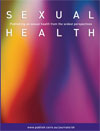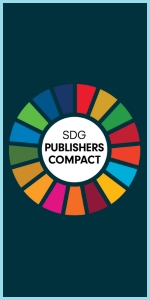
Sexual Health
Volume 14 Number 5 2017
Caring for Transgender People: Looking Beyond the Hype
SH17165Caring for transgender people: looking beyond the hype
This special issue presents a collection of articles that addresses issues facing transgender individuals that are particularly challenging.
This review provides an update on the epidemiology and quasi-epidemiology of Gender Dysphoria or a self-reported transgender identity in children, adolescents, and adults. Recent studies suggest an increased prevalence of Gender Dysphoria in adults although it remains a relatively rare behavioural phenomenon. Using the broader descriptor of a transgender identity, however, suggests a much higher prevalence, perhaps due to the influence of increased society acceptance and affirmation of gender-variant identities.
SH17001Evidence affirming school supports for Australian transgender and gender diverse students
This article discusses transgender and gender diverse (TGD) student rights in a range of Australian laws and education policies. It shows how the inclusion of TGD students, particularly in sexuality education, is reinforced in the current Australian National Curricula. Finally, it considers research on Australian TGD students’ educational attainment, experiences of transphobic abuse and violence, and experiences in contexts where they do and do not have staff (and other) support. It promotes a shift from harmful approaches of victimising TGD students, towards celebrating their resilience and social contributions.
SH17001 Abstract | SH17001 Full Text | SH17001PDF (121 KB) Open Access Article
SH17014Gender dysphoria and the controversy over the Safe Schools program
This article reviews problems with the Safe Schools program in Australia which seeks to protect lesbian, bisexual, gay, transgender and intersex young people from bullying. The information in this program to Principals, teachers and young people is inaccurate and misleading. The program, as presently designed, may actually cause harm because it promotes gender transitioning without expert medical advice. The great majority of children resolve gender dysphoria issues around the time of puberty.
SH17086Gender trouble: The World Health Organization, the International Statistical Classification of Diseases and Related Health Problems (ICD)-11 and the trans kids
WHO is revising its ICD diagnostic manual; the most widely used diagnostic manual worldwide. There is controversy over a proposal for a Gender incongruence of childhood diagnosis targeting young children identifying in a gender other than the one matching the sex they were assigned at birth. The author argues that the proposed diagnosis is unnecessary, potentially harmful, and at odds with WHO’s thinking in regard to other forms of diversity in young people, and that WHO should now abandon the proposal.
SH17104Legal issues for transgender people: a review of persistent threats
Transgender people face legal barriers that can affect their physical and mental health. Health care providers’ awareness of the complexities transgender people often grapple with may help providers better identify negative factors affecting their clients or patients and deliver appropriate and timely interventions.
SH17009The Gender Feeling Amplitude: an instrument to assist clinicians with the assessment of gender diverse adolescents
A child’s anatomy does not always predict gender identity, however, children with gender variant behaviours experience intense pressure to conform to expectations based on assigned gender. Parent initial reactions of disorientation and overwhelm can develop through a process of acquiring information, acceptance, understanding and advocacy. Empowering parents through validation of their experiences, providing resources and strategies, while facilitating confidence and acceptance of their child’s needs, offers parents a solid foundation to support their child’s needs for gender identity integration.
SH17044The medical care of the neovagina of transgender women: a review
For transgender women, genital adjustment surgery involves removal of the natal reproductive organs and creation of a neovagina, vulva and clitoris. We conducted a review of the medical literature in order to summarise the issues that can affect the health of the neovagina in the long term, and to make recommendations on how to manage these issues.
SH17050Transgender HIV and sexually transmissible infections
Transgender people are vulnerable to HIV and STI through a range of intersecting psychosocial factors. As a consequence, transgender people bear a very high burden of HIV and STI, especially in resource- poor countries, although transgender men remain understudied everywhere. Health services can improve access to STI and HIV testing, care and prevention through developing transgender- friendly multidisciplinary services.
SH17096Current research gaps: a global systematic review of HIV and sexually transmissible infections among transgender populations
This systematic review focussed on HIV and STIs among transgender populations globally. The review underscored how more data are needed on how the interaction of individual determinants, including biological risks of transmission, programmatic determinants such as service-delivery models and policy-level determinants including institutionalised stigma in healthcare settings, influence the HIV- and STI-related outcomes of transgender populations.
SH17015Transgender women and HIV-related health disparities: falling off the HIV treatment cascade
HIV positive transgender women have poorer health outcomes than their cisgender counterparts. Resultsof this study confirm that transgender women are less likely to have suppressed HIV replication, a key indicator of HIV disease progression. Findings from the case-control analyses showed that social support predicts HIV-related health outcomes among transgender women over and above other common correlates of health disparities.
Gender dysphoria is associated with significant health disparity. Although specialised interventions such as endocrine therapy and surgery are safe and effective, mortality for the transgender population remains substantially higher than the general population. Primary health care is one of the components that contribute to health discrepancy for transgender individuals, but the medical needs of transgender patients are often misunderstood. This paper addresses some of the main primary care issues for transgender populations.
SH17048 Abstract | SH17048 Full Text | SH17048PDF (162 KB) Open Access Article



